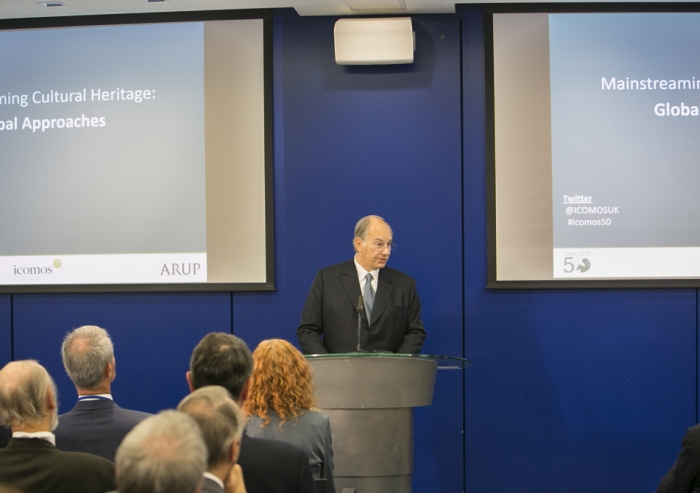Remarks by His Highness the Aga Khan upon receiving the Carnegie Medal for Philanthropy
“The achievements of the AKDN would not be possible without the tireless contributions of the global community of Ismailis that I lead, residing in Central and Southern Asia, the Middle East, Africa, Europe and North America. Our volunteers and contributors also include many thousands of others from multiple cultures and faiths around the world. They are united with us in our mission to help build capacity and dignity for individuals, to enable them to take control of their own development.”
Presiding Officer,
First Minister,
My Lords and Ladies,
Fellow Recipients,
Ladies and Gentlemen:
My sincere thanks to the Scottish Parliament for welcoming us here today in this magnificent building, in the homeland of Andrew Carnegie.
Dr. Robinson, thank you for your most generous remarks. It is especially humbling to hear these kind words from an individual of such great accomplishment, who has served not only her own country with distinction, but also the global cause of human rights.
My thanks also to the worldwide network of Carnegie foundations, both for your continuing commitment to international development, and for your efforts to encourage generosity that crosses borders. The vision and the legacy of Andrew Carnegie, who was a role model for progressive philanthropy, are being well served by his successors.
And thank you also for the very great honour of this award. It is extremely gratifying to be counted among the accomplished recipients here today, as well as those of previous years, whose commitment to improving the dignity of humanity is a profound force for good in the world.
Ladies and gentlemen, individual philanthropy is an important duty in all the major religions of the world.
In Islam, the Holy Quran offers explicit direction to share resources beyond one’s requirements, and to care for the poor and those in need. The injunction to service is the ethical underpinning of the work of the Aga Khan Development Network. It drives its efforts to build the intellectual capital and institutions needed to address the problems of our world today. An example is the Global Centre for Pluralism which we have recently founded in partnership with the Government of Canada.
The achievements of the AKDN would not be possible without the tireless contributions of the global community of Ismailis that I lead, residing in Central and Southern Asia, the Middle East, Africa, Europe and North America. Our volunteers and contributors also include many thousands of others from multiple cultures and faiths around the world. They are united with us in our mission to help build capacity and dignity for individuals, to enable them to take control of their own development.
These volunteers include those who contribute to the governance of the 200 entities of the AKDN in more than 30 countries, many others who support co-operatives, craft guilds, village organisations and women’s groups, and still others who work closely with the vast array of grassroots civil society organisations that form the bedrock of our activities.
It is on behalf of these many thousands of selfless and dedicated men and women of multiple languages, cultures, faiths and nationalities, urban and rural, that I accept this award today.
Thank you.







